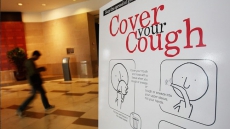People who consume one or more cans of cold drinks per day are exposing themselves to a potential carcinogen, warns a new study.
The ingredient, 4-methylimidazole (4-MEI) - a possible human carcinogen - is formed during the manufacture of some kinds of caramel colour. Caramel colour is a common ingredient in colas and other dark soft drinks.
"Soft drink consumers are being exposed to an avoidable and unnecessary cancer risk from an ingredient that is being added to these beverages simply for aesthetic purposes," said Keeve Nachman, senior author of the study.
Building on an analysis of 4-MEI concentrations in 11 different soft drinks first published by Consumer Reports in 2014, researchers estimated exposure to 4-MEI from caramel-coloured soft drinks and modelled the potential cancer burden related to routine soft drink consumption levels in the United States.
"This unnecessary exposure poses a threat to public health and raises questions about the continued use of caramel colouring in soda," Nachman of Johns Hopkins Center for a Liveable Future (CLF).
Results indicated that levels of 4-MEI could vary substantially across samples, even for the same type of beverage.
While there is currently no federal limit for 4-MEI in food or beverages, Consumer Reports petitioned the Food and Drug Administration last year to set limits for the potential carcinogen.
"This new analysis underscores our belief that people consume significant amounts of soda that unnecessarily elevate their risk of cancer over the course of a lifetime," said Urvashi Rangan, executive director for Consumer Reports' Food Safety and Sustainability Center.
The results were published online in the journal PLOS One.





